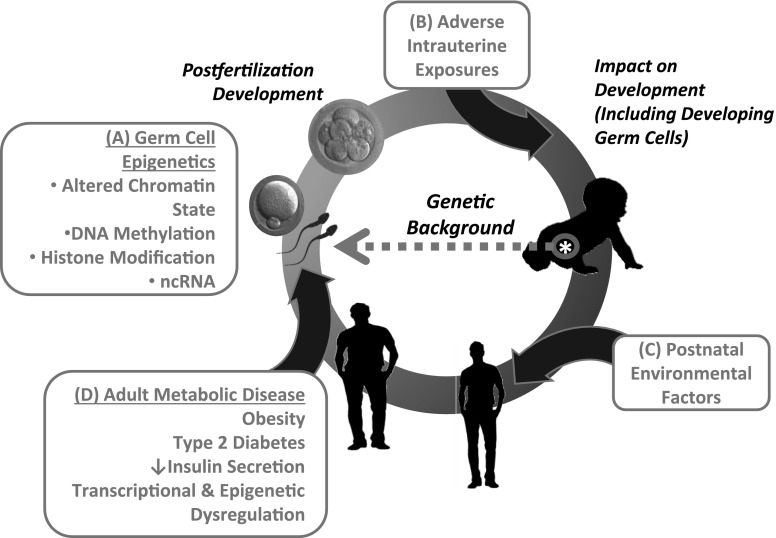Figure 3.
Effects of adverse intrauterine exposures and postnatal environmental factors on pathogenesis of adult metabolic disease and transgenerational disease risk. A: Epigenetic marks within parental germ cells, such as DNA methylation, histone modification, or noncoding RNA (ncRNA) (e.g., in semen) may influence early postfertilization transcriptional responses, altering development and ultimate health of offspring. Adverse intrauterine exposures (B) and postnatal environmental factors (C) may also contribute to disease risk via epigenetic modifications. D: Transcriptional and epigenetic dysregulation associated with adult metabolic disease can also impact germ cells, promoting transgenerational disease risk. Note that these effects occur in the context of the individual’s genetic background, which can modulate responses to environmental exposures.

